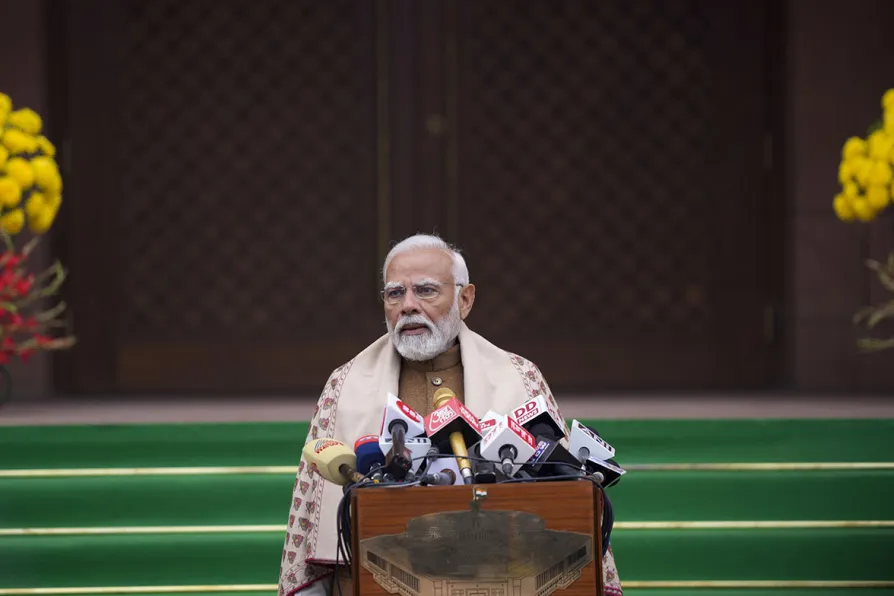
 Indian Prime Minister Narendra Modi addresses the media after he arrived in the Parliament on the first day of its budget session in New Delhi, India, January 31, 2024
Indian Prime Minister Narendra Modi addresses the media after he arrived in the Parliament on the first day of its budget session in New Delhi, India, January 31, 2024
THIRTY-NINE international genocide scholars have warned the Indian government that its plans to turn an uncontacted tribe’s island into a mega-port and city will wipe them out.
Great Nicobar Island in the Indian Ocean is home to an estimated 300 Shompen hunter-gatherers, two-thirds of whom are uncontacted.
They are one of the most isolated tribes on Earth and live in the dense rainforests that occupy the interior of the island.

Beatrice Pompe and Bernadette Dugasse have submitted a UN complaint against Labour’s deal with Mauritius, highlighting how exclusion from ancestral lands is denying their right of return and justice for historical abuses, reports ELIZABETH MISTRY

STUC to call on British government to end arms sales to Israel and the Scottish government to end enterprise grants for weapons manufacturers












